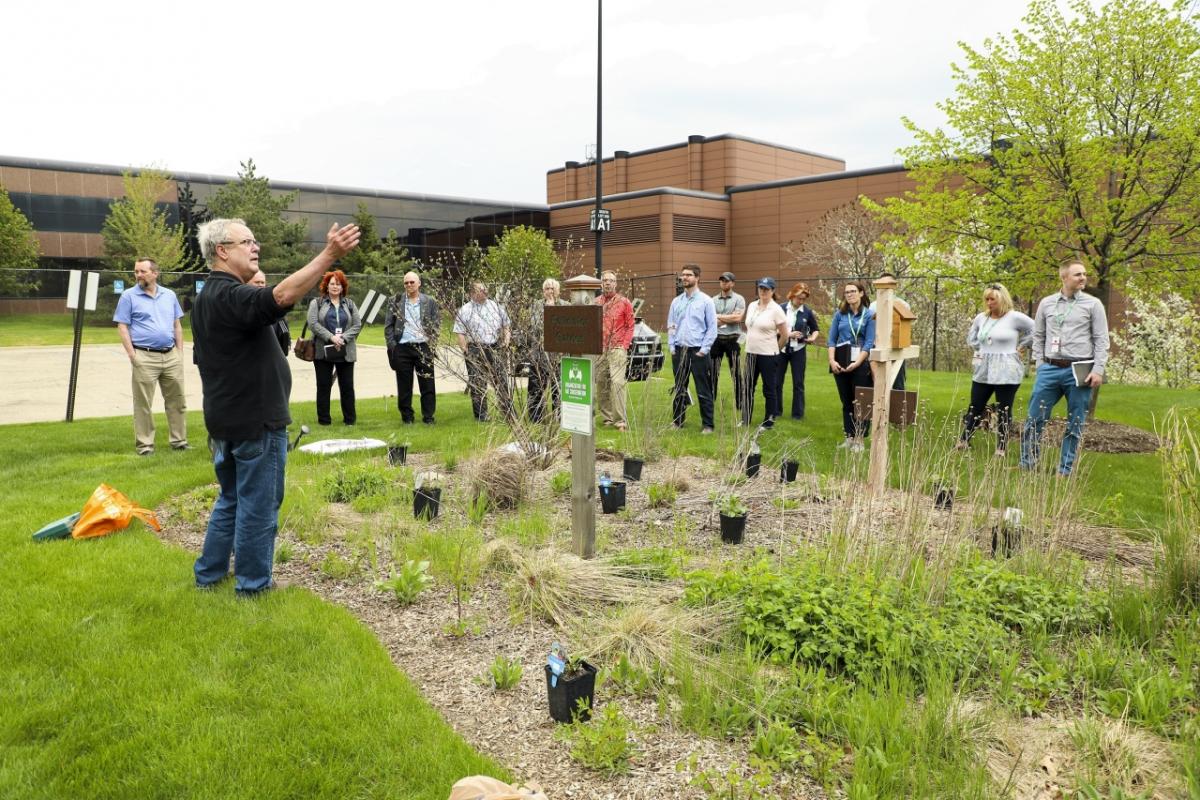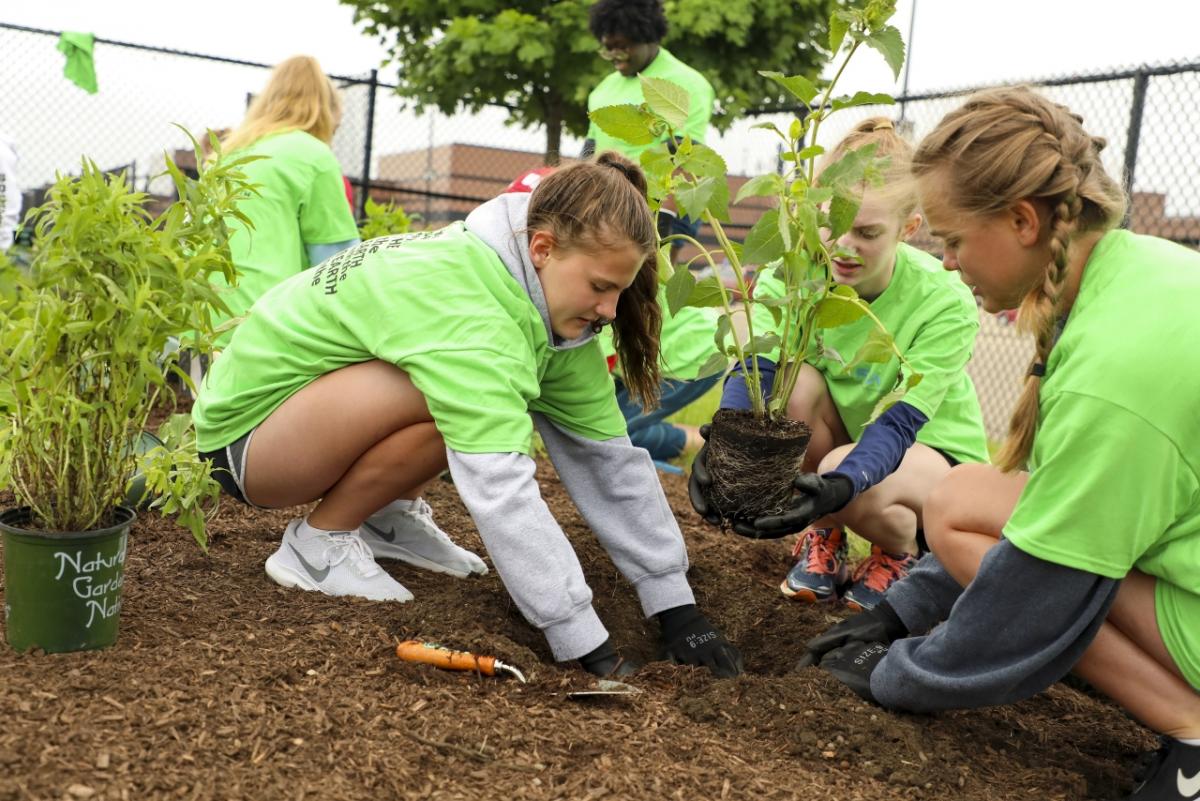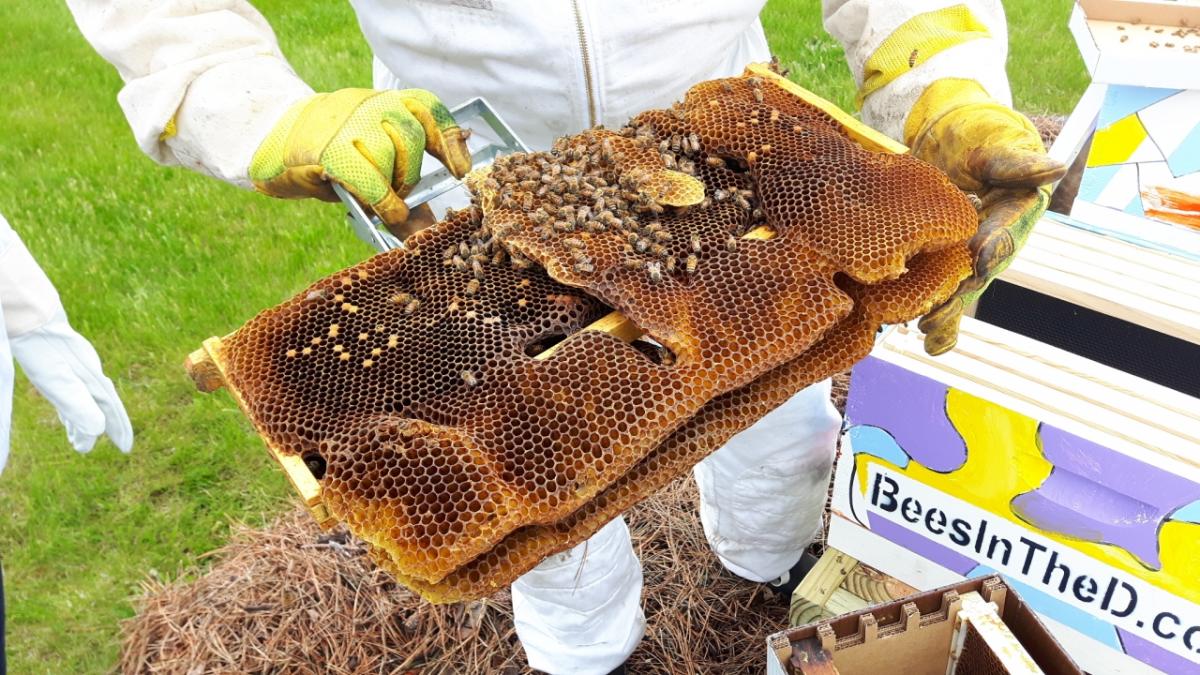Partnering to Build up Pollinator Populations
When rival automakers come together it’s usually to brag about their latest engineering accomplishment or to re-imagine the future of mobility, but sometimes they garden. Yes, garden.
As part of the Suppliers Partnership for the Environment quarterly meeting, environmental reps from Daimler, Ford, General Motors, Honda, Toyota and various auto suppliers got their hands dirty to help FCA US replenish a pollinator garden on our North American headquarters campus in Auburn Hills, Michigan.
Pollinators, such as bees, birds, and butterflies, play an important role in maintaining the health of the ecosystem and supporting agriculture by planting pollen grains, which in turn result in fruit and seed, but are declining in stark numbers. The U.S. Department of Agriculture notes that pollinators are responsible for assisting over 80 percent of the world’s flowering plants.
“Our ‘Wildlife at Work’ team has taken note and is taking action,” said Mark Werthman, Environmental, Health and Safety Lead at FCA US. “From bat and bee houses to butterfly waystations, we know these simple projects play a vital role in biodiversity conservation.”
On June 2, we planted our fourth pollinator garden with the help of Avondale High School students from Auburn Hills, Mich. Together with FCA employees, and family members, the students planted 80 native species to Michigan, including the showy goldenrod, purple coneflower, and gray-headed coneflower, in hopes of attracting bees and butterflies. Forty Dogwood Trees will be planted in July.
Our commitment goes beyond our headquarters.
Through our membership with the Wildlife Habitat Council (WHC), we are now tracking and promoting healthy biodiversity at 12 facilities across North America. The following locations currently have pollinator projects in motion:
- Monarch butterfly waystation at Toledo Assembly Complex in Toledo, Ohio
- Urban honeybee hives at Mack Avenue Engine Plant in Detroit, Michigan
- Pollinator garden at Warren Stamping Plant in Warren, Michigan
- Pollinator garden at Sterling Stamping Plant in Sterling Heights, Michigan
The FCA US headquarters received a WHC Conservation CertificationSM in April 2015.
“We thank our partners, our competitors, and our community for their support and engagement as we build pollinator populations,” continued Werthman.
You can learn more about the Company’s ‘Wildlife at Work’ efforts on our Earth Day blog post here.




